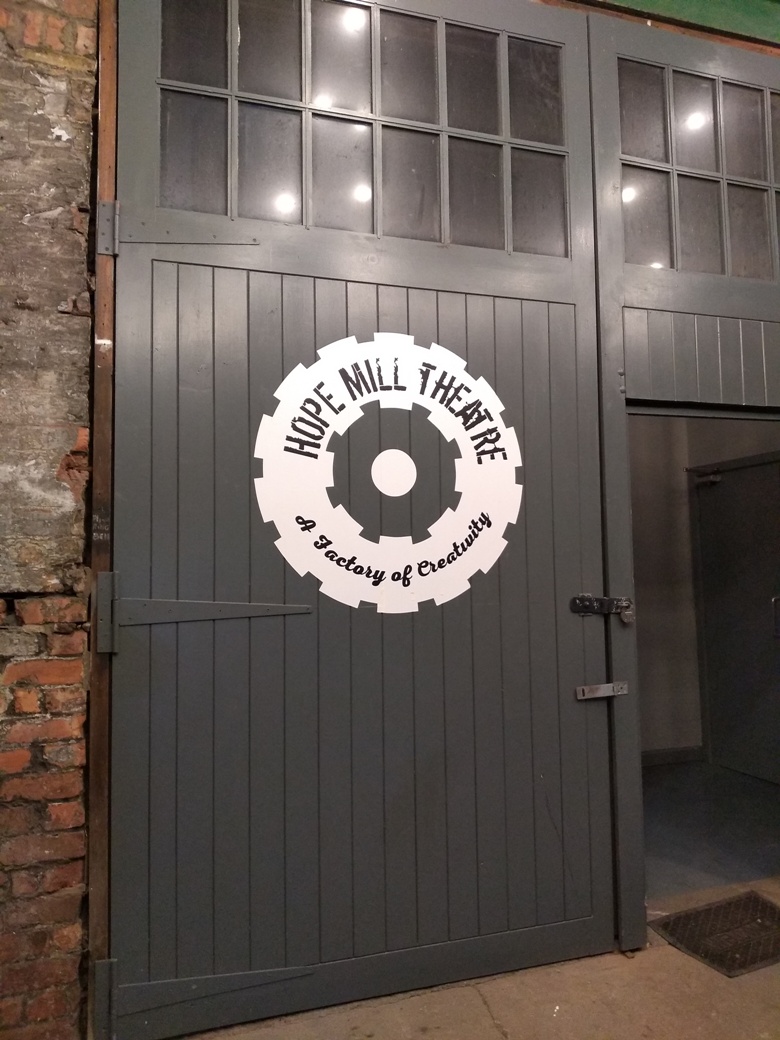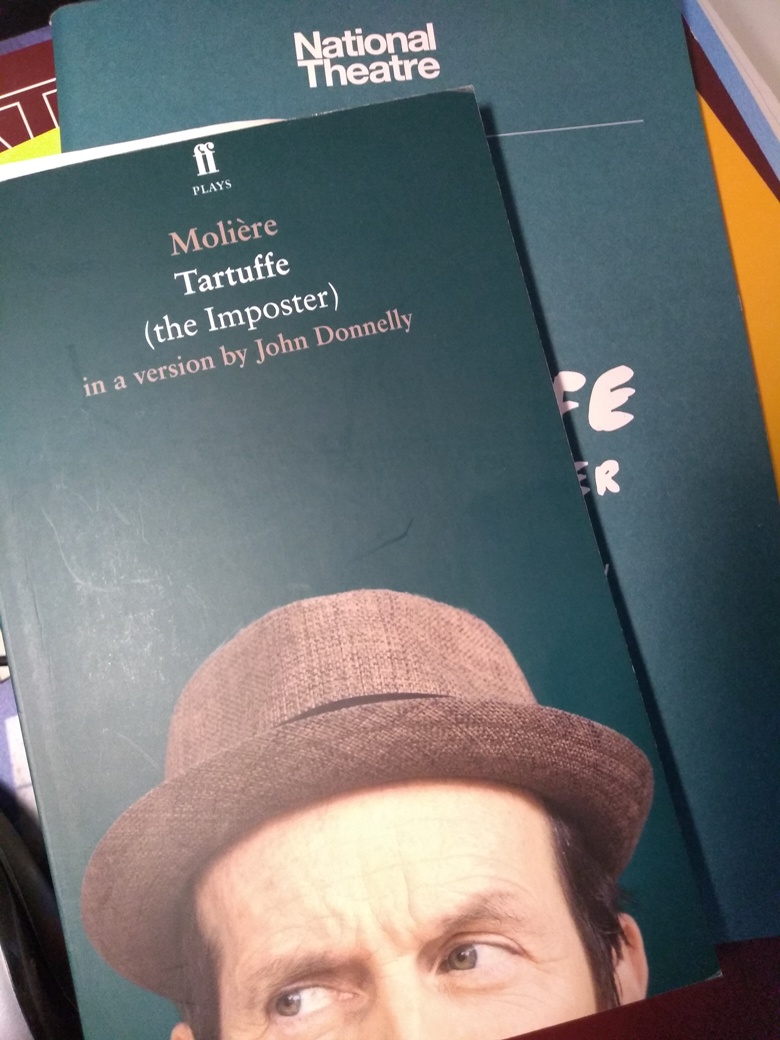
The original Broadway production of Rags in 1986 was a notorious flop, running for just four performances. Despite the short run, it received five Tony nominations, including a nod for Best Original Score, and cast member Judy Kuhn gave a memorably fiery performance of the title song on the Tony Awards telecast the following year; a recording was released in 1991 featuring most of the original Broadway cast, with Julia Migenes standing in for original star Teresa Stratas, and that recording is the reason people keep going back to the show to try and make it work. Rags has book problems – even now, after umpteen rewrites, Rags has book problems – but the score as represented on that recording includes the best music Charles Strouse has written for the theatre (‘Blame It On the Summer Night’ might very well be the single best song he has ever written for anything, and it’s certainly among the best individual songs written for Broadway in the past fifty years), and some of Stephen Schwartz‘s most moving lyrics. This show’s music is a potent blend of Broadway, jazz, klezmer and opera, and it’s often magnificent; the structure surrounding it, unfortunately, has never quite lived up to the power of that score.
The show is essentially a kind of sequel to Fiddler on the Roof, which also has a book by Joseph Stein. The plot follows immigrants as they arrive in New York in 1910(ish) and try to establish themselves as new Americans living in tenements on Manhattan’s Lower East Side. In all versions of the show – and there are many different versions of this show – the central figure is Rebecca Hershkowitz, a woman fleeing Russia with her young son David. Reading the Broadway production’s reviews, it’s clear there were too many subplots surrounding her; this rewrite, with a new book by David Thompson (Joseph Stein having died in 2010), premiered at the Goodspeed Opera House in Connecticut in 2017, and it does a reasonably good job of paring back the show’s various plot strands into a reasonably coherent narrative that is driven by Rebecca’s struggle to build a life in New York for herself and her son. Alongside this new book, though, Strouse and Schwartz have taken scissors to their score, and unfortunately the result is not an improvement. A certain amount of this music’s grandeur has been lost – and that’s allowing for the fact that in a chamber production like this one you’re never going to get Michael Starobin‘s magnificent original orchestrations – and some songs have been cut up/split/re-sequenced in ways that don’t completely make musical sense. Granted, this may be less of a problem if you’re less familiar with that 1991 recording than I am; even so, it seems a strange choice to make when the score has always been the piece’s biggest asset.
This production, at Manchester’s Hope Mill Theatre, makes a very strong case for the material, though, and director Bronagh Lagan redeems herself here for her abysmal revival of Promises, Promises at the Southwark Playhouse a couple of years ago, which was so bad that her name on the credits almost stopped me from buying a ticket for this. There’s a real sense of community among the cast, Gregor Donnelly’s set somehow makes stacks of suitcases resemble the Lower East Side tenement blocks around which most of the plot takes place, the band (four musicians backstage augmented by four actor-musicians among the ensemble) sounds terrific, and Rebecca Trehearn is giving an absolutely luminous performance as Rebecca. No, she doesn’t have the kind of huge operatic voice you hear in Julia Migenes’s performance on the recording (and that audiences at the original Broadway production must have heard from Theresa Stratas), but she’s a glorious singer and an honest actor, and her rendition of Rebecca’s big anthem ‘Children of the Wind’ at the climax of the second act is very moving indeed.
There’s an excellent ensemble surrounding her, with particularly memorable work from Lydia White as Bella, the young woman Rebecca befriends on the boat to America, from Valda Aviks as a shrewd but charming widow with her eyes on Bella’s father, and from Robert Tripolino as Sal, an Italian union organiser. The choral singing is terrific, particularly in the complex, syncopated ‘Greenhorns’ near the top of the show and the reprise of ‘Children of the Wind’ in the finale. Everybody does their best with the dialogue, and the book – yes, even in this newly-revised version – lets everybody down. Inevitably given the way the show has been chopped and changed so much over the years, we don’t have a cast of characters here so much as a parade of stereotypes. It’s been refashioned from an ensemble piece into what more or less amounts to a vehicle for the actor playing Rebecca, but Thompson doesn’t give her enough to play with. We know she escaped a pogrom, that her husband is dead (that’s a rewrite, and a smart one; her husband was a significant – and obnoxious – character in the original version of the show, and her backstory works better if she’s a widow), that she’s a decent woman and a good mother, that she can sew, and that arriving in America gives her a push towards a far more independent lifestyle than she’d imagined for herself in Russia… and that’s more or less it, and it’s a story that’s been told many times before, usually more compellingly than it is in Thompson’s book.
Some significant musical material has been cut, too, including a late-in-act-two aria called ‘Dancing With the Fools’; that cut in particular robs Rebecca of a certain amount of depth, although Trehearn somewhat manages to paper over the cracks. Songs are cut up and split apart in ways that are baffling if you know the score from the recording; we hear, for example, the verse of ‘Children of the Wind’ a full act and a half before we hear the (beautiful) refrain. Characters have been cut, new characters have been introduced, and some musical material has been switched between characters, not always to good effect; it makes theatrical sense to turn the title song into the Act One finale, but since this version of the show is Rebecca’s story rather than Bella’s, the song is made into a duet between Rebecca and Bella rather than a solo for Bella. That might not be a problem if the lyrics had been completely rewritten, but they haven’t been, and the song – a howl of rage at having travelled across an ocean to live in poverty in a slum – does not entirely fit the character Trehearn has established by that point in the show, although there’s absolutely nothing wrong with her performance of it. The main portion of the song sounds like the kind of outburst that would come from a much younger woman, probably one who isn’t a mother – which of course fits the character it was originally written for. In the original version of the song, Bella’s father tries to talk her down; here, those lines are given to Bella, and arguments written from the perspective of a middle-aged father just sound plain unconvincing coming from a late-teenage girl. The (re)writing in that section of the show significantly undercuts both the performers and the song; it’s still a powerful moment, but – like a lot of the show – it would be so much more powerful if the lyrics consistently sounded as if they were written for the character(s) singing them.
Having said that, it’s worth seeing. This is not a show that’s going to be done often in the UK, and even though this production messes with the score in ways that don’t improve it, the best moments are certainly memorable, and while Bronagh Lagan doesn’t completely solve every problem in the writing, this is a strong production of difficult material, and it’s wonderful to see a regional fringe theatre take this material on and do such a loving job with it.
There are, however, a couple of things Hope Mill could (still) learn about the audience experience. Now, yes, I booked for the first preview, and first previews happen after a rush of activity that is sometimes difficult to complete within the allotted time. The show I saw was in excellent shape and you’d never have guessed it was the first public performance. HOWEVER, the performance ended up beginning thirty minutes late, and I’m afraid that demonstrates a certain disdain for the audience. This is Greater Manchester, not London; the transport system here shuts down earlier than you might expect (and certainly earlier than it should), and that’s even more the case the further you go from the city centre. For me, that thirty-minute delay was the difference between being able to get all the way home by tram/bus and having to use a taxi for the last part of the journey. The cost of the taxi won’t break me, but it’s money that needn’t have been wasted; there was an apology from the director at the top of the show, but it was sufficiently vague that it did nothing to dispel the suspicion that this production’s creative team consider themselves more important than their audience, which is exactly the wrong way around. Stay later the night before, show up earlier on the day, but fix your problems on YOUR time, not mine, and don’t waste my money because you failed to meet a deadline.
And when you advertise that your lobby/cafe/bar will be open from ninety minutes before showtime for drinks/coffee/light meals/whatever, it is unacceptably rude to keep customers who show up at the opening time you’ve advertised on your website and on the tickets waiting outside the door for twenty minutes because the director and her creative team haven’t got their shit together. That, again, suggests an attitude towards customers that is somewhere between disdain and contempt, particularly since at this theatre’s location there is nowhere else to go. Hope Mill, don’t get me wrong, is a wonderful facility, and a real asset to Manchester’s cultural scene – but the arrogance with which they treated patrons last Saturday night isn’t a good look for them. The work they present is fascinating; their manners, unfortunately, seem to leave a great deal to be desired.

















